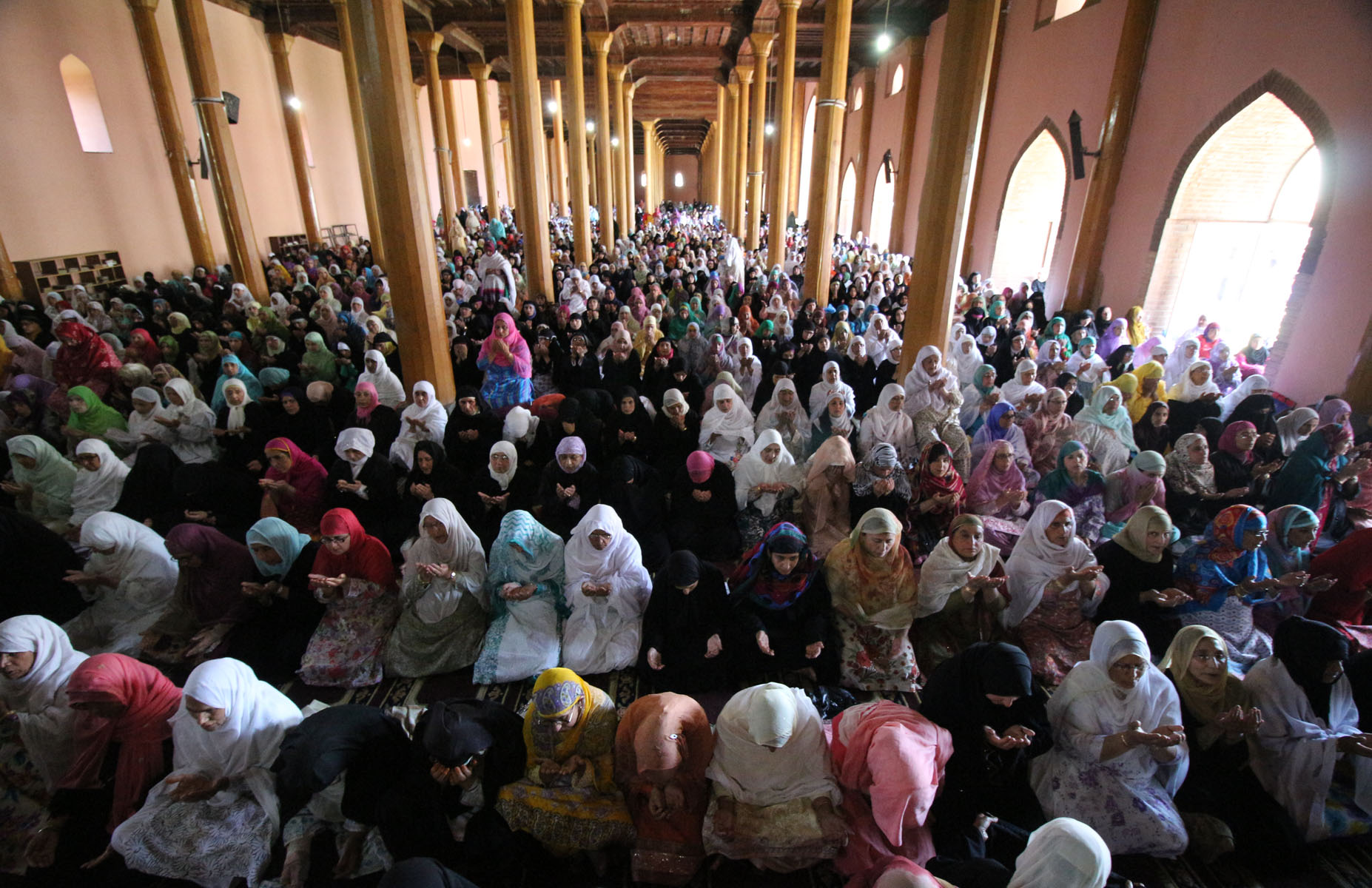by Mohasina Showkat
Islam has raised the status of the women from below the earth so high that paradise lies at her feet.

While the West continues to be engulfed with the paramount notion of feminism fighting desperately for women liberties, Islam honoured women by elevating them and protecting them with unprecedented rights. For many people, oppressed, inferior, and unequal-these are the first words that come to mind when thinking about women in Islam. These stereotypes confuse Islam with cultural practices and fail to recognize that Islam has empowered women with the most progressive rights since the seventh century.
At a time when female children were buried alive in Arabia and a women’s life had no essence, when she was treated only as an object, Islam gave women the right to education, to marry someone of their choice, to retain their identity after marriage, to divorce, to work, to own and sell property, to seek protection by the law, to vote, and to participate in civic and political engagement.
God devotes an entire chapter of the Quran, the holy book of Islam, to women. Besides, God directly addresses women repeatedly throughout the Quran. Islam proclaims that all human beings, men and women, are born in a pure state and the goal of every Muslim is to preserve this purity by shunning evil tendencies and beautifying their inner being with virtuous traits.
In Islam, both men and women are treated equally. The Holy Quran makes it clear that the sole basis for superiority of any person over another is piety and righteousness, not gender, colour, or nationality. It says, “O mankind! We created you from a single (pair) of a male and a female and made you into nations and tribes that you may know each other. Verily the most honoured of you in the sight of Allah is (one who is) the most righteous of you.”
Freedom and respect are two things that every human being yarns to have in every sphere of life. Muslim women get respect and are looked at beyond aesthetics; they are actually taken seriously in their communities. An excellent example from fourteen centuries ago is that of Hazarat Khadija (RA), the wife of Prophet Muhammad (PBUH), she was one of the most successful businesswomen of Mecca, and she freely spent from her wealth to support her family.
In Islam, God clearly gives mothers a high status and evaluates their positions in the family. In the Qur’an, God mentions all the sacrifice mothers make in bearing children to remind people to treat their mothers with love, respect, and care. Emphasizing the importance of mothers, the Prophet Muhammad (PBUH) said, “Heaven lies under the feet of your mother.”
On another occasion, a man repeatedly asked the prophet (PBUH), “who amongst the people is the most worthy of my good companionship?” Every time, the Prophet (PBUH) replied, “Your mother”. When the man asked for the fourth time, he replied, “Your father”.
Back in the seventh century, the prophet (PBUH) declared that the pursuit of knowledge is obligatory on every Muslim male and female. This declaration was very clear and was largely implemented by Muslims throughout history. One of the most influential scholars of Islam was the prophet’s (PBUH) wife, Hazrat Aisha (RA).
Before Islam, women all across the globe were deprived of inheritance and were themselves considered property to be inherited by men. Islam gave women the right to own property and inherit from relatives, which was a revolutionary concept in the seventh century. Whether a woman is a wife, mother, sister or daughter, she receives a certain share of her deceased relative’s property. This share depends on her degree of relationship to the deceased and the number of heirs. While many societies around the world denied women inheritance, Islam assured women this right, illustrating the universal justice of Islam’s divine law.
A woman in Islam has the right to work and spend the money she earns as her wishes. She has no obligation to share her money with her husband or any other family members, although she may choose to do so out of goodwill.
In the modern world, which constantly emphasizes the physical form through various media, women are constantly faced with an unattainable standard of beauty. Although Muslim women are falsely classified as oppressed based on their modest dress, they are in fact liberated from such objectification by the society around them. This modest appearance, which includes veiling, highlights women’s personality and character instead of her physical figure and promotes a deeper appreciation for who she is as a person and also protects her from the unnecessary glance.
It is now up to us as women to recognize that we are empowered by the rights given to us by God. We must accept that we can achieve all that we aim to achieve, and by supporting each other we can achieve even more.
(The author is a Srinagar based engineering student. The opinions expressed in this article are those of the author’s and do not purport to reflect the opinions or views of Kashmir Life.















